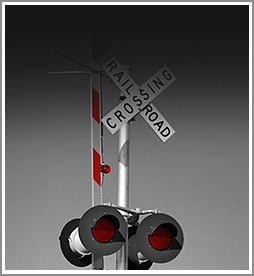 Railroads owe their passengers a heightened duty of care. Typically, two people passing on the street only owe each other a “duty of reasonable care.” This means that we owe each other a duty to act reasonably to make sure that the other person doesn’t get injured. This duty applies to drivers on the road, doctors performing surgery, and landlords repairing parts of their buildings.
Railroads owe their passengers a heightened duty of care. Typically, two people passing on the street only owe each other a “duty of reasonable care.” This means that we owe each other a duty to act reasonably to make sure that the other person doesn’t get injured. This duty applies to drivers on the road, doctors performing surgery, and landlords repairing parts of their buildings.
But railroads are part of a special class of people called “common carriers.” This class includes railroads, airplanes, taxis, etc., and requires that they exercise extreme caution and diligently guard against dangerous conditions. In most cases, even the smallest level of fault on the part of a railroad results in legal liability if the passenger is harmed. This is true even if the injury was partly caused by another party.
Duty to Passengers
As a passenger, you’ve purchased a ticket to ride the train to a certain destination and you have a right to expect that you’ll be safe during this journey. This doesn’t mean that the railroad has to absolutely guarantee your safety under any and all circumstances. If some unusual or unpredictable event occurs that causes harm to the passengers, it may be that the railroad had no duty to guard against the possibility. But, under most ordinary circumstances, the railroad has a duty to protect you.
The railroad owes its passengers a duty to carefully operate, inspect, and maintain their equipment. All of their engineers and anyone operating railroad equipment must be properly trained, professional, and cautious.
Particular caution must be taken by the train to protect you when you’re getting on or getting off of the train. This means that the doors, handrails, steps, etc., must be safely designed and properly maintained so that you can exit safely. Proper brakes must also be in place so that the train doesn’t lurch forward while passengers are in the process of exiting.